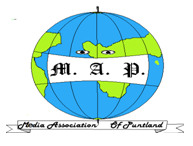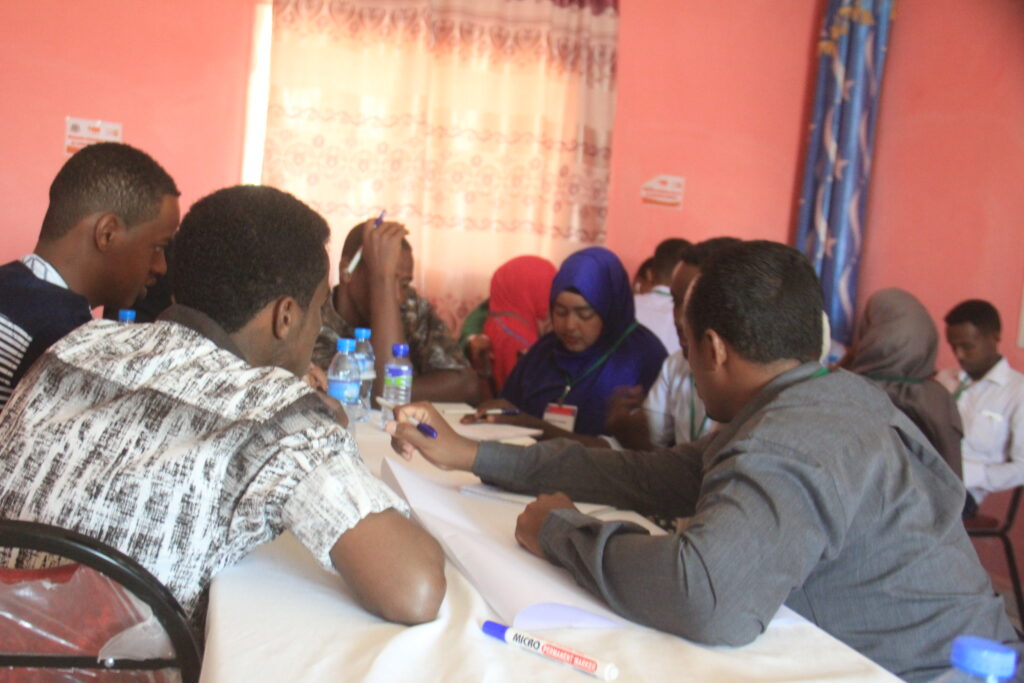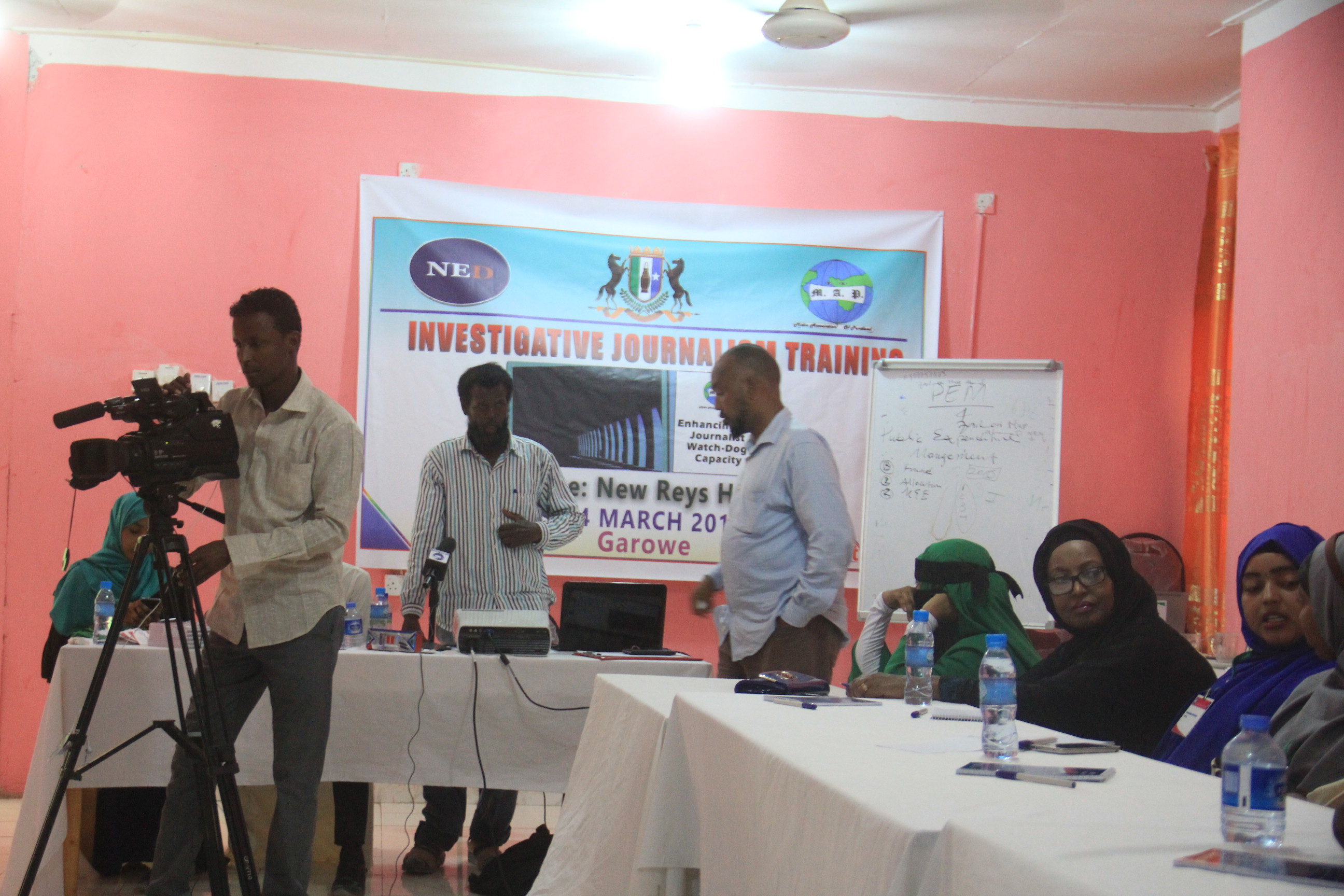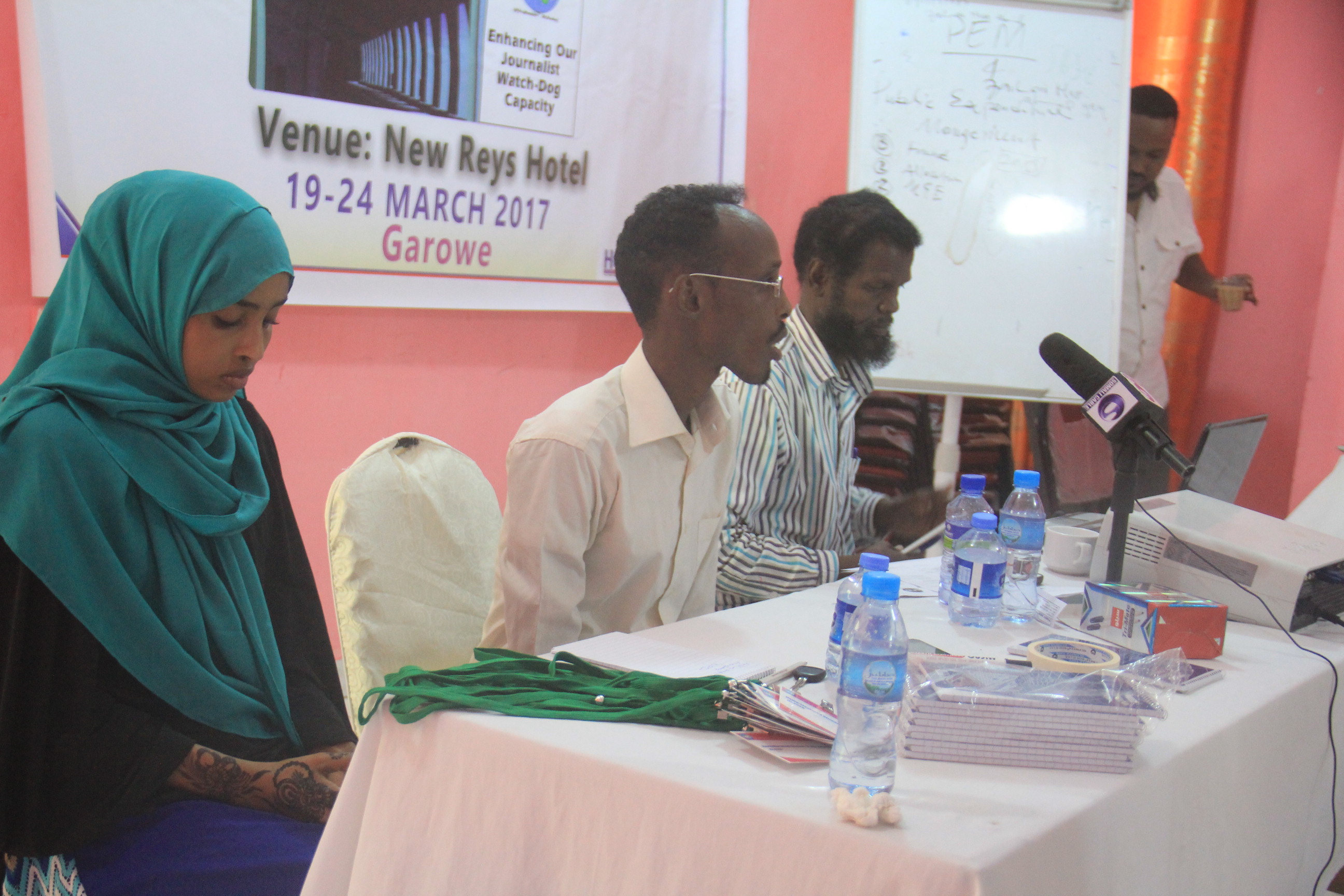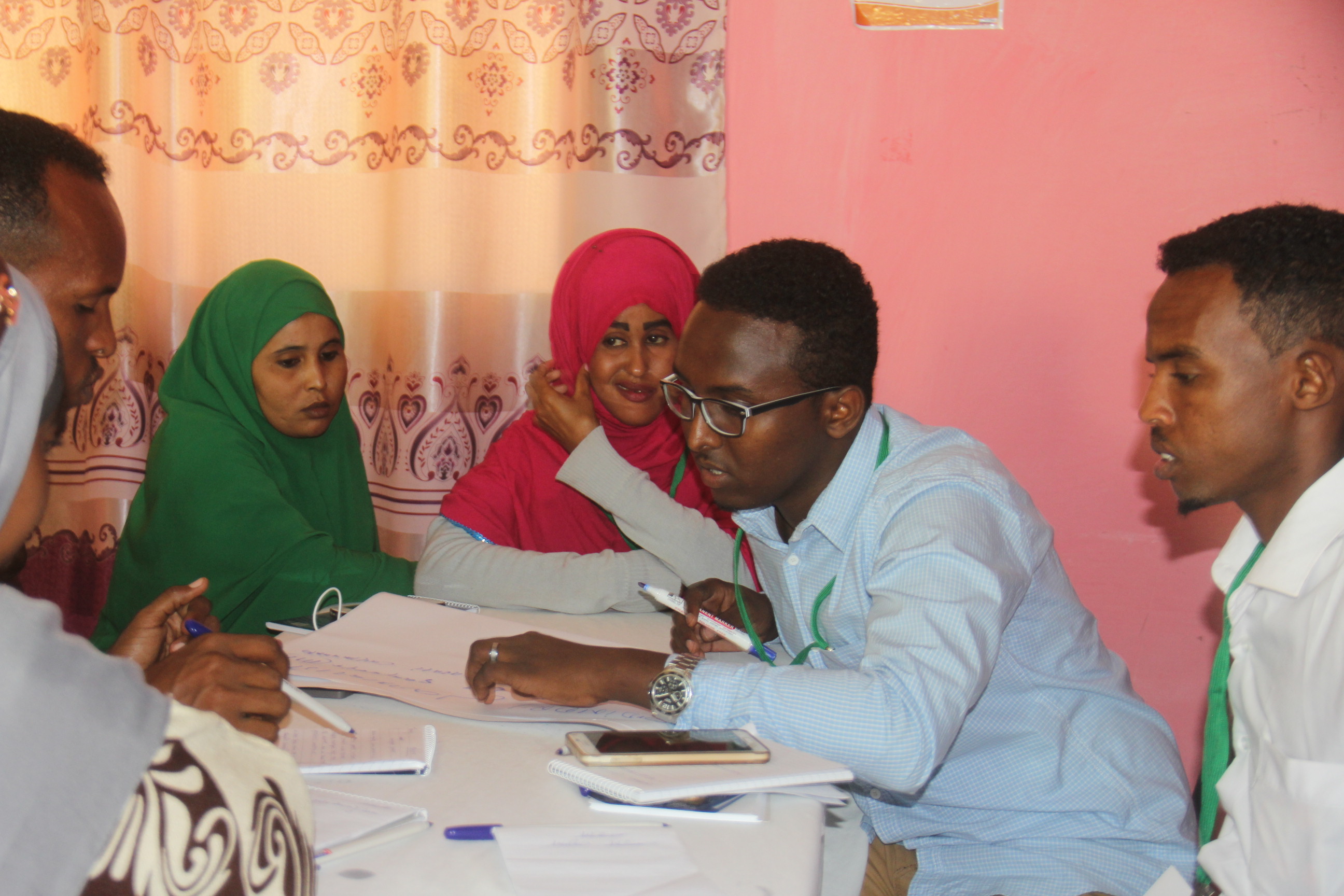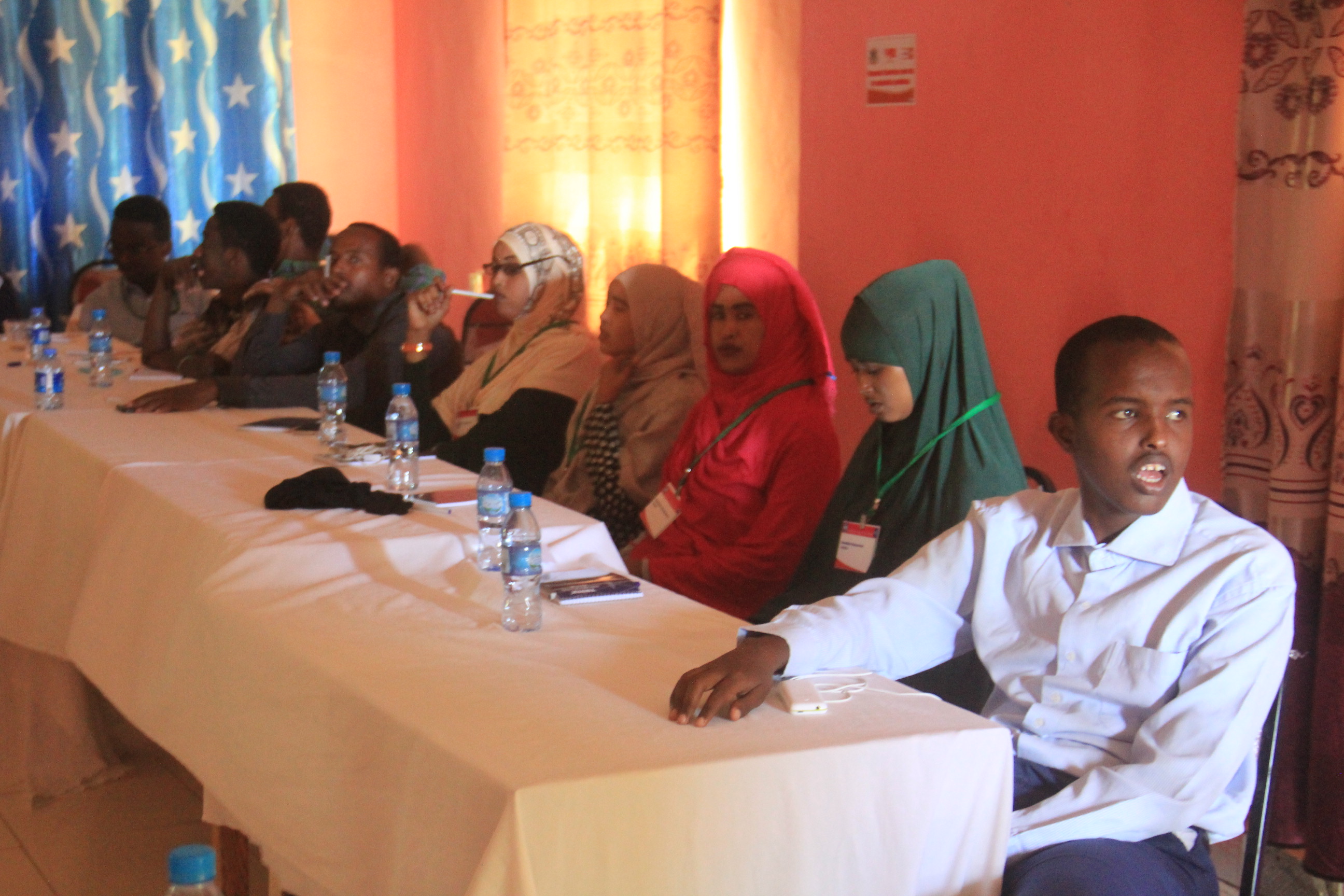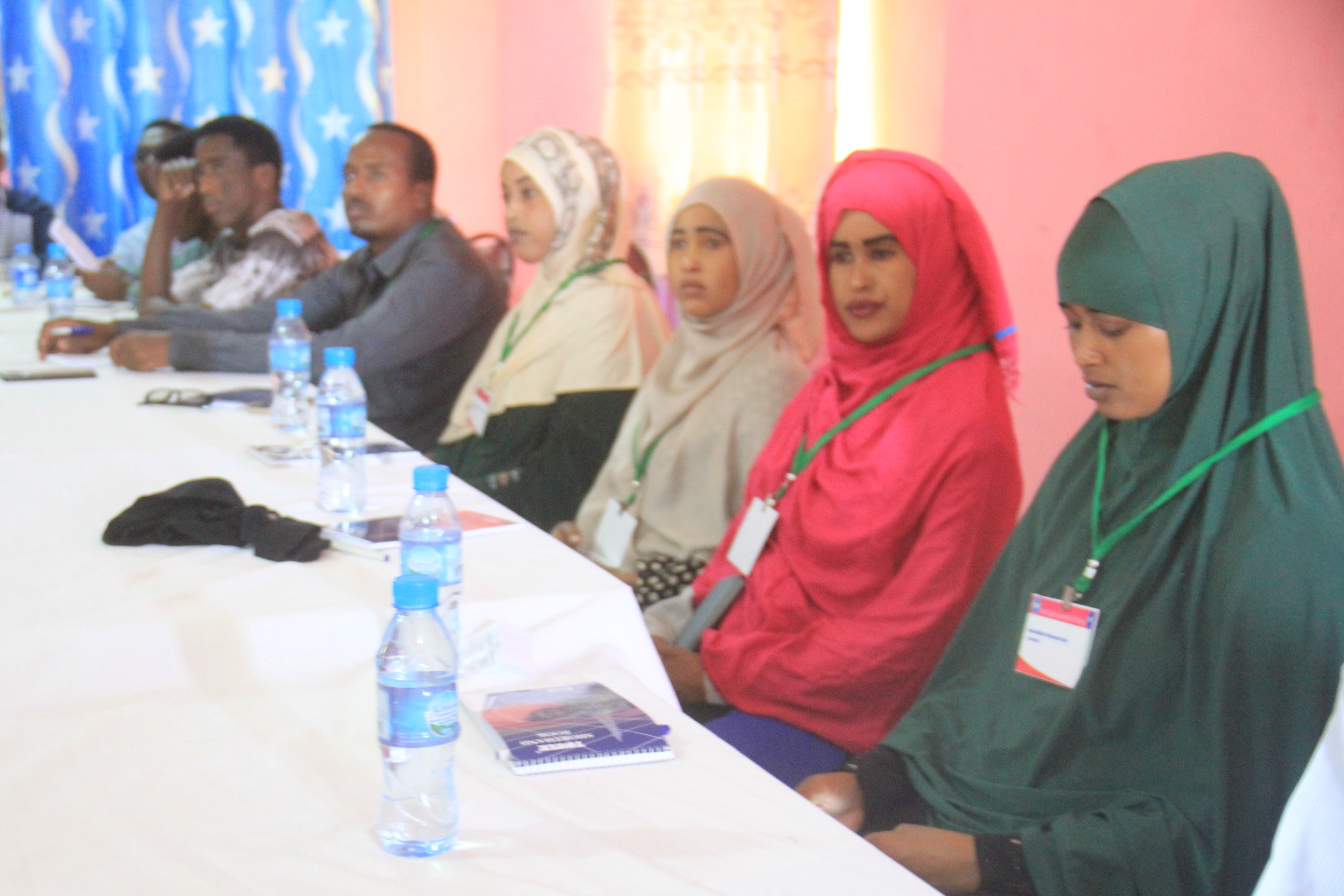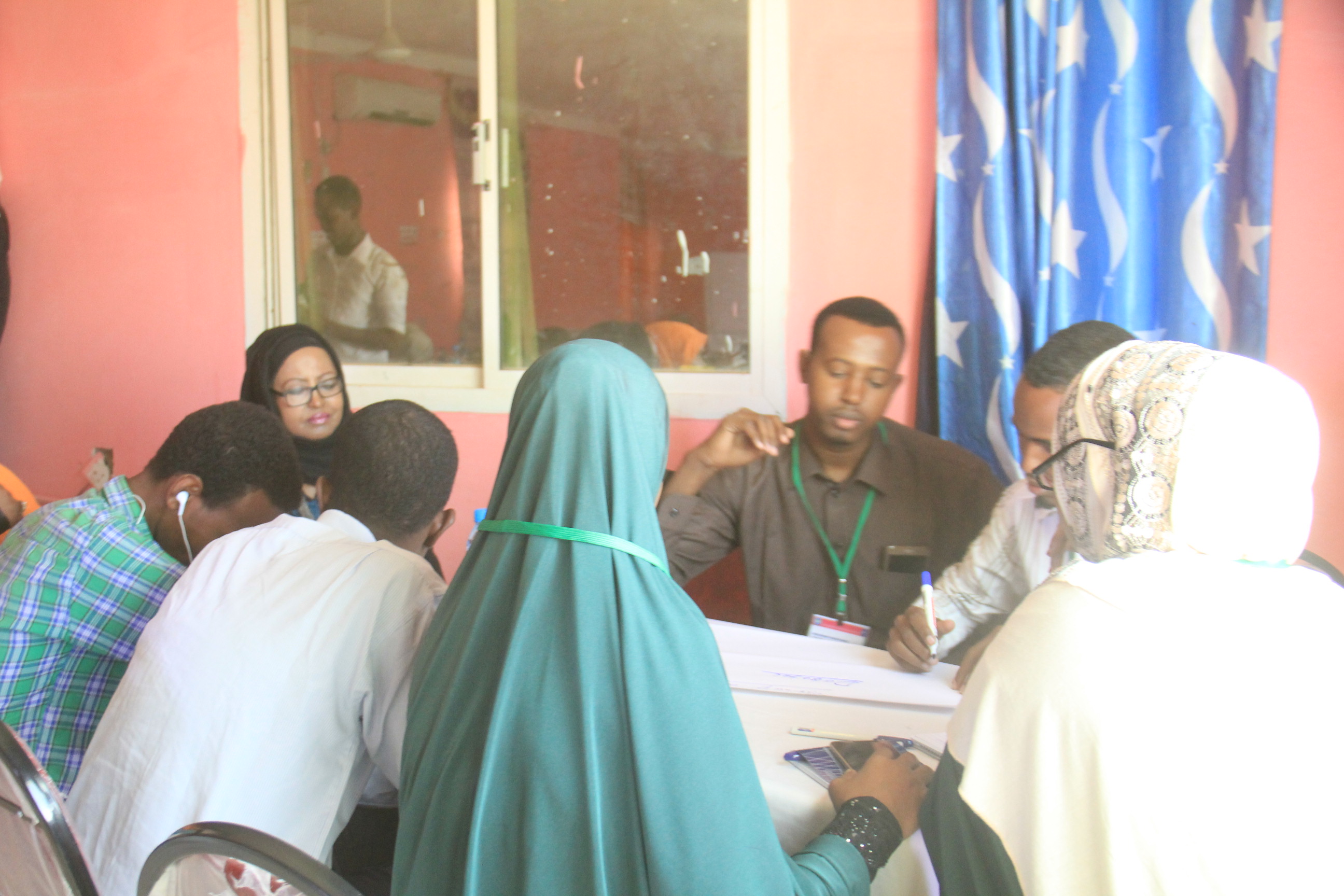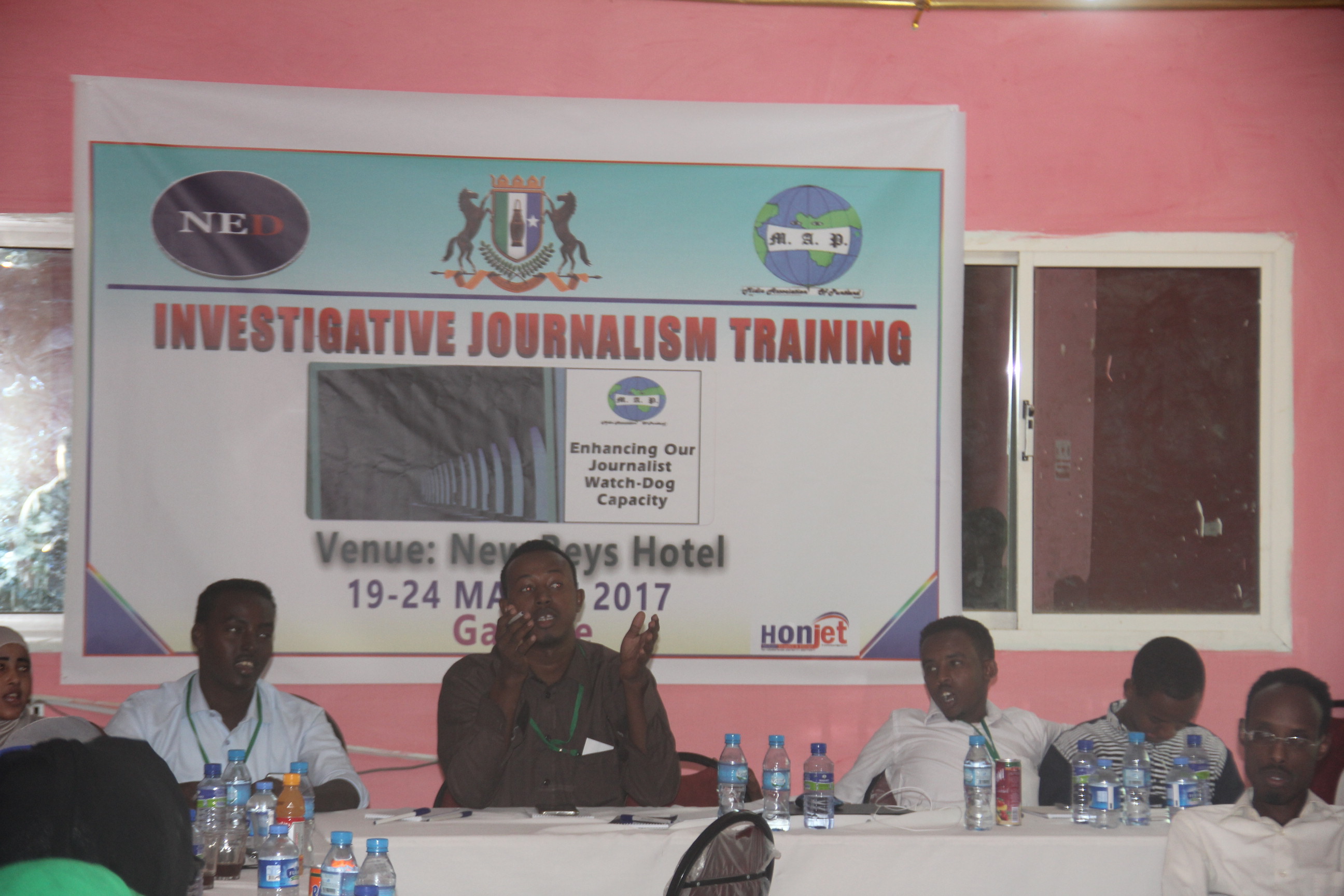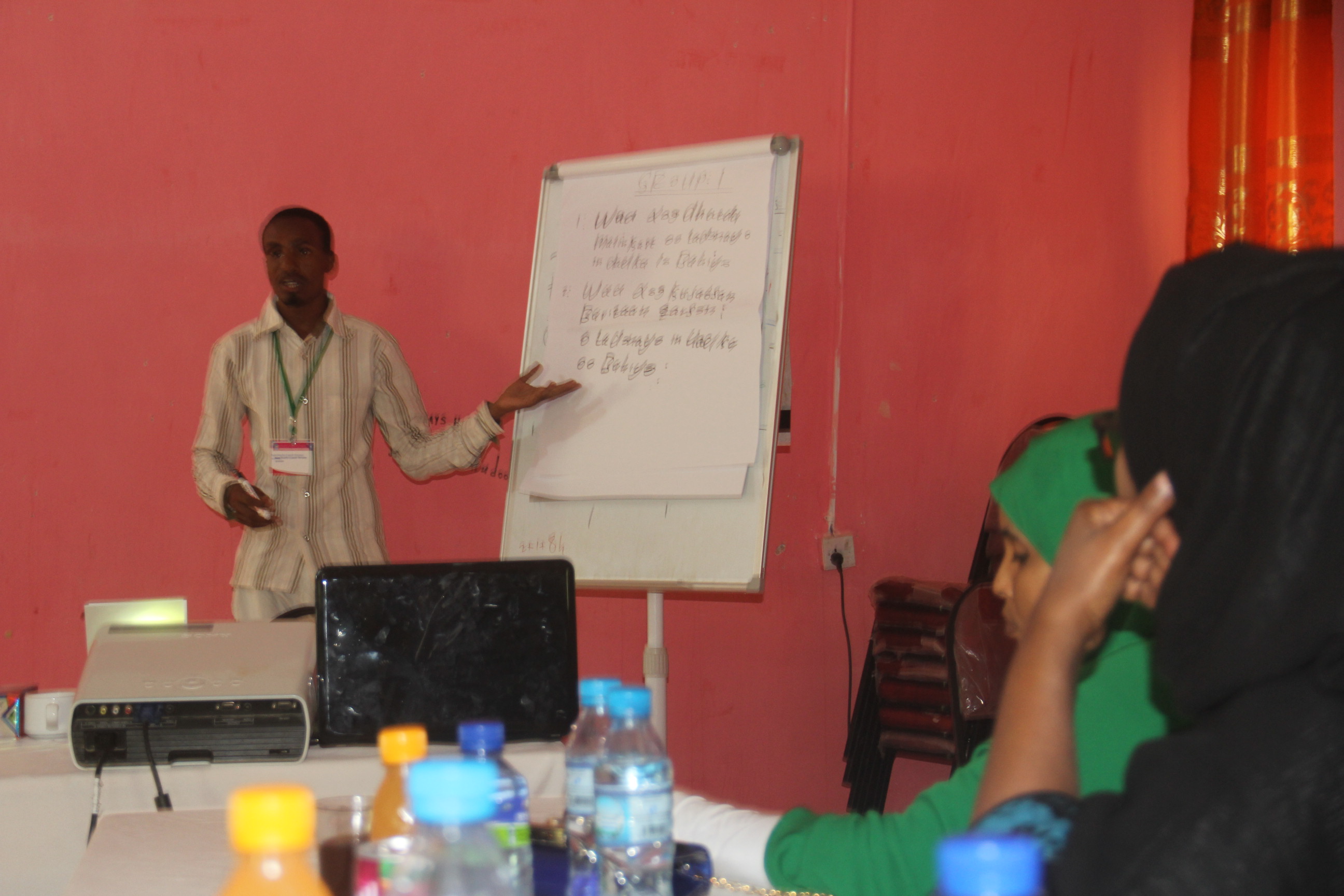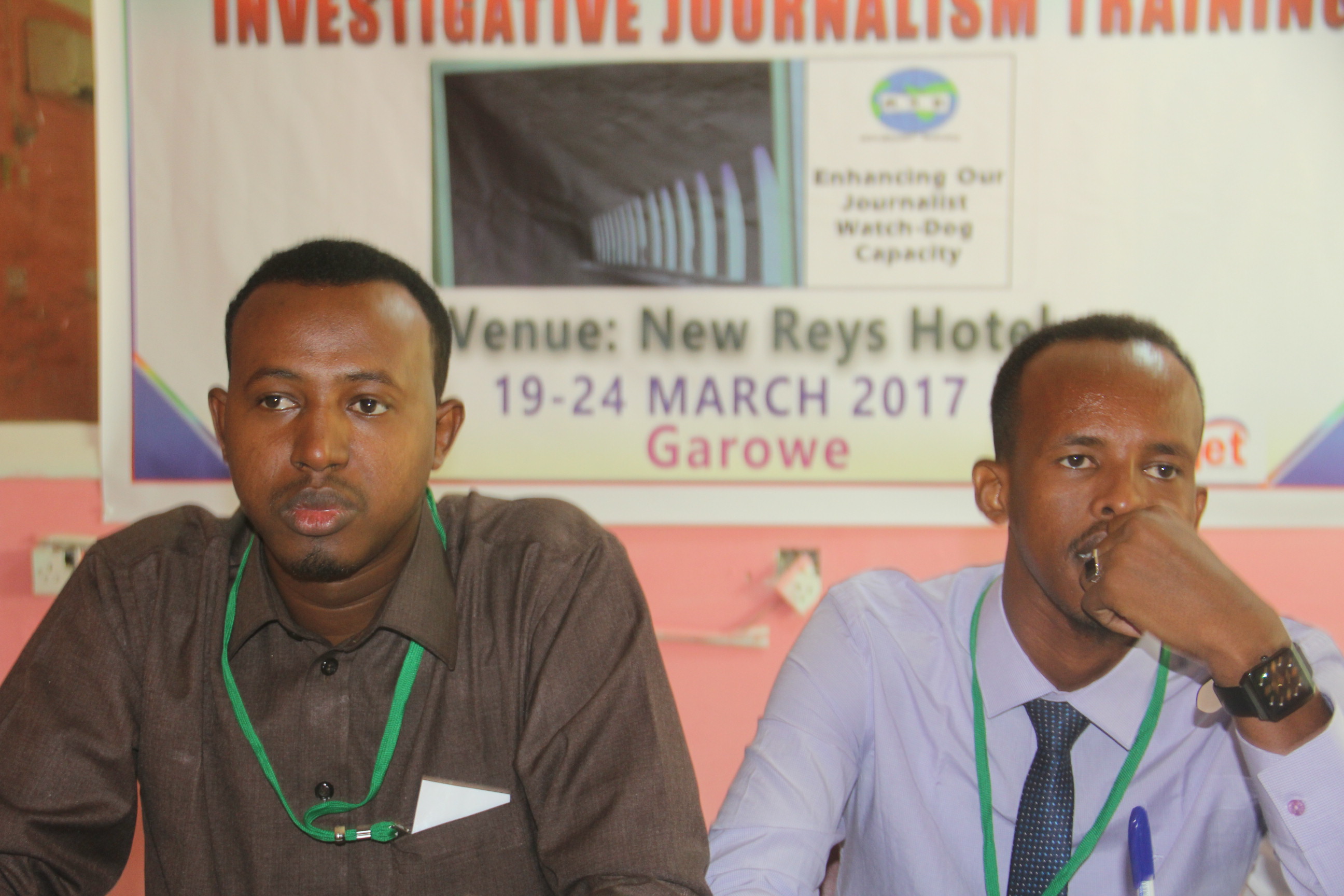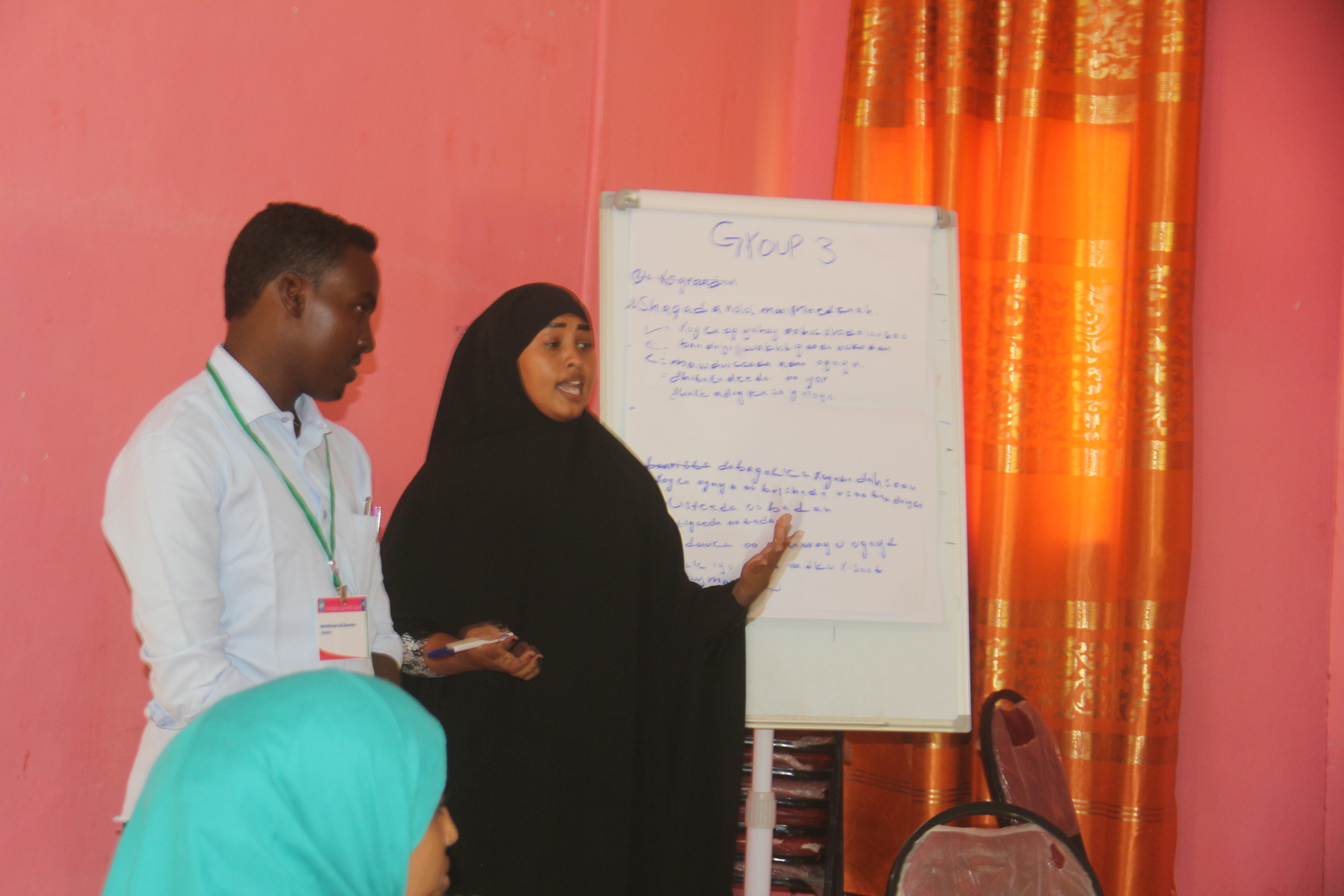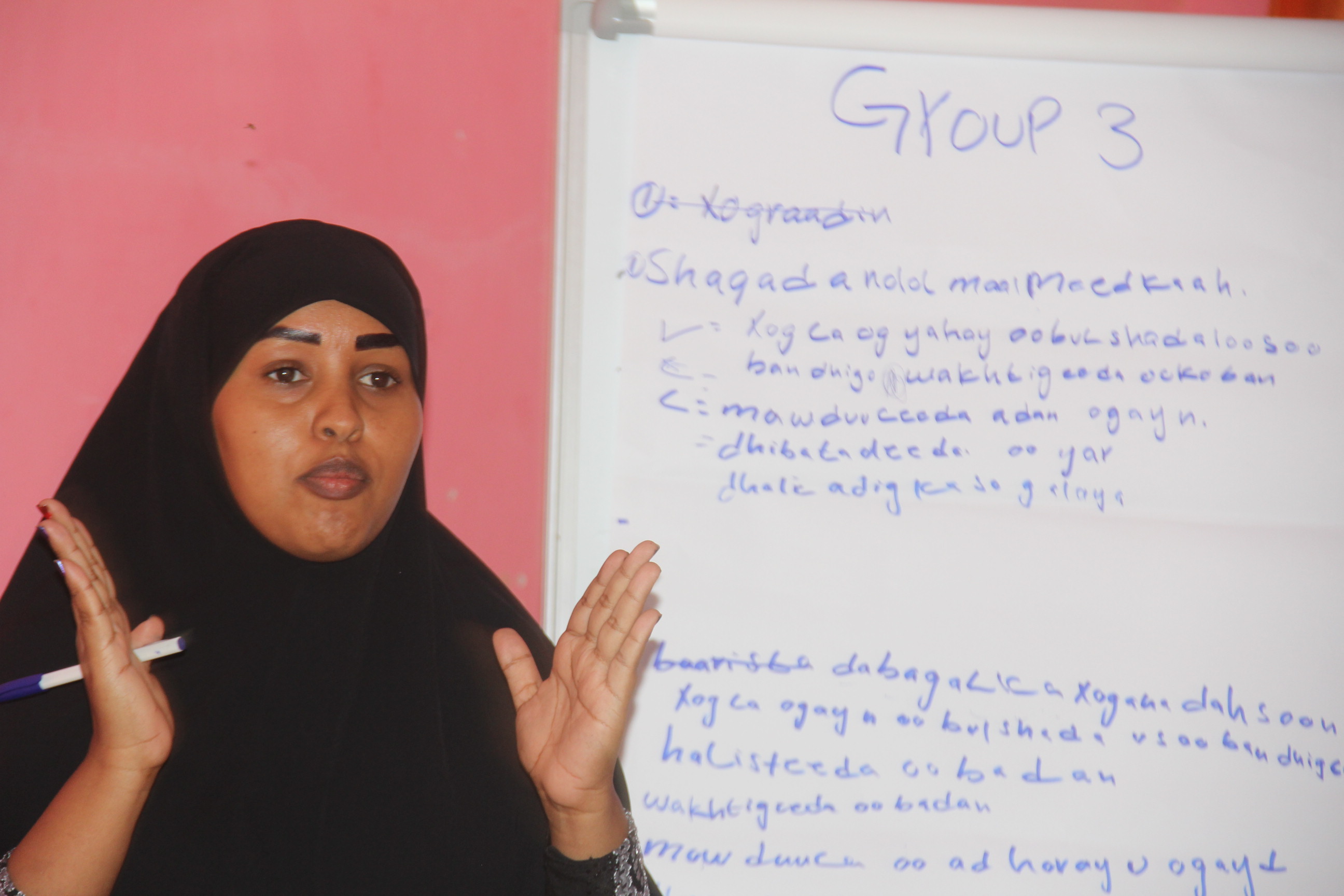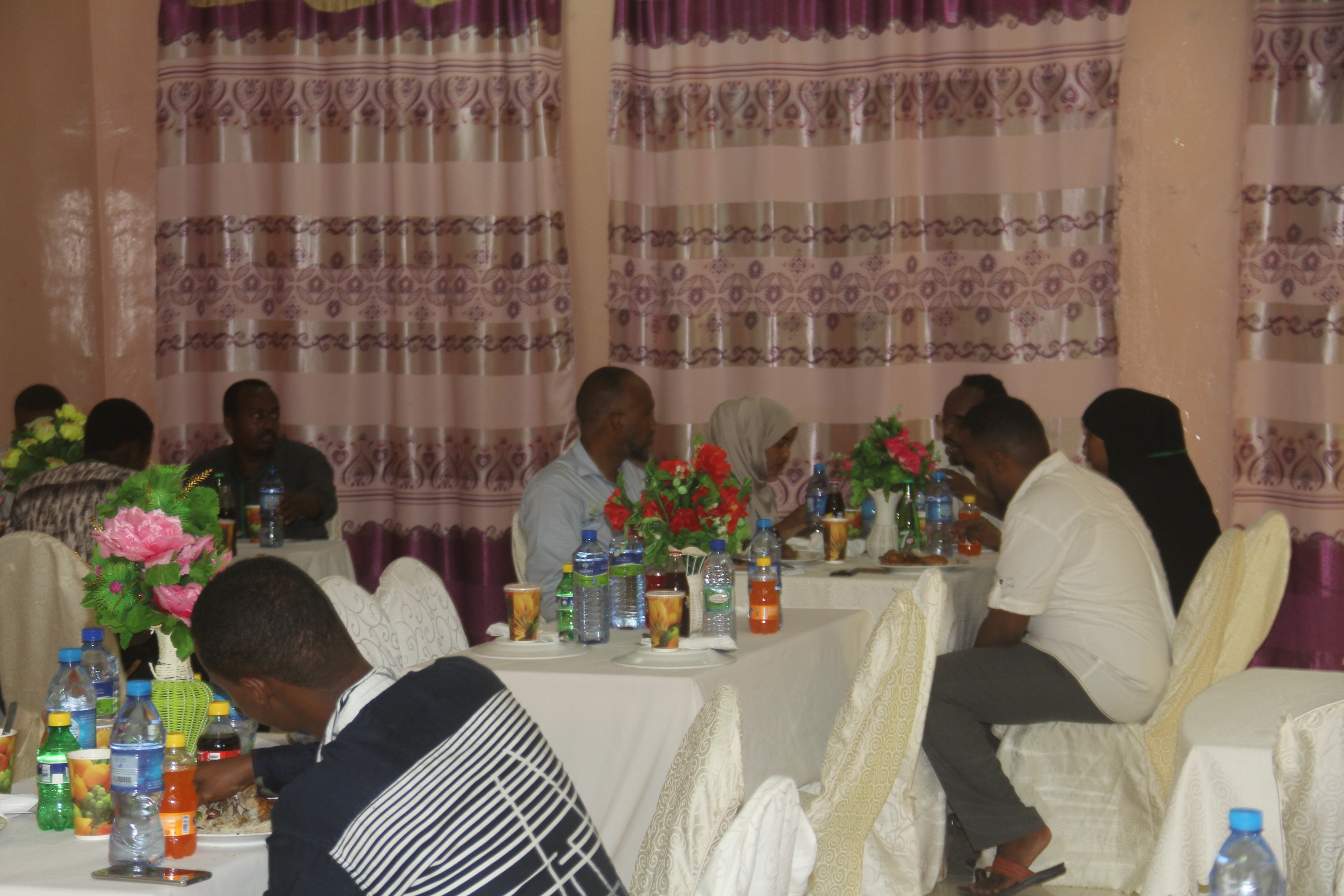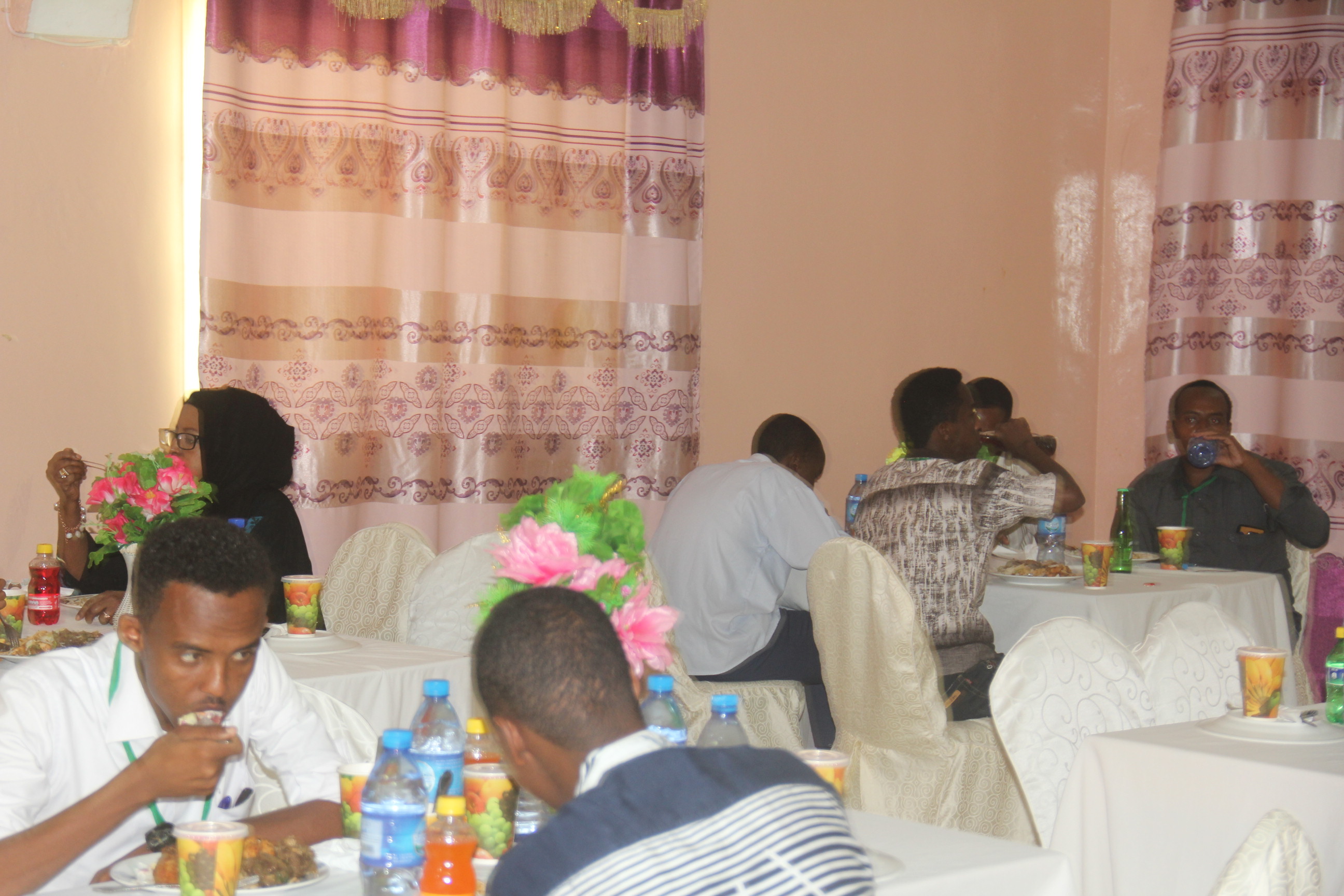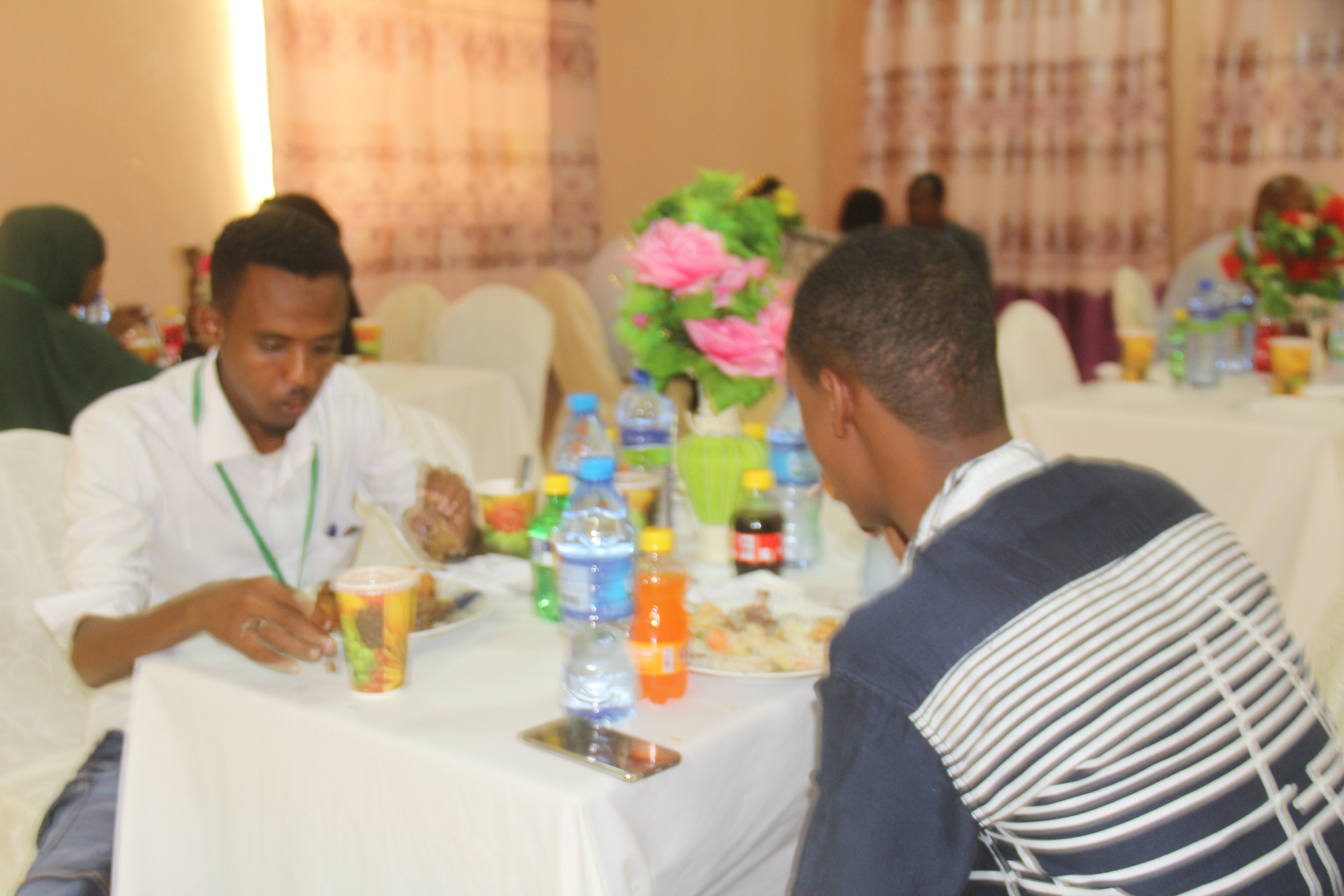Somalia has been ranked the most corrupt country in the world in the latest Transparency International report. The 2016 Corruption Perception Index puts the Horn of Africa state at position 176 out of the 176 countries sampled.
|
In her inaugural remarks MAP Secretary general welcomed the assembled journalists and the other officials and guests. She introduced the objectives of this investigative journalism training and expected outcomes of this 5-day long interactive teaching. ‘’Welcome Ladies and Gentlemen to this event and thank you for allocating time and accepting to our call on attending this important training on investigative Journalism – This five days teaching is aimed at enhancing the Journalistic skills of our local journalist capacities on how to carry out a successful investigation with a greater focus on holding the Government Accountable” Said Fatima Mohamed. Secretary General added‘’ investigative journalism techniques will develop the skills of our local journalists so that they can more acutely assume the role that is expected of them and demanded by the communities they serve. The Puntland Ministry of Information’s department director of communication Mr. Saleeman Sacid Nur who was the chief of honor of the training who officially opened the event also welcomed the media practitioners while he also urged the participants to take this knowledge attentively as investigation is sensitive matter that seeks skills. He then officially opened the event and wished the organizers and participants a successful implementation of the training. ‘’Investigation is always a case-sensitive issue and pursues skills on whoever is carrying out an investigation whether the law-enforcement or Journalists, absence of adequate skills may put the author at risk, he added I urge you (participants) to attentively take advantage this training in order to gain the knowledge, at last I thank MAP for organizing this training and wish you a successful training”, said Saleeman of the Puntland Ministry of Information at the opening of the training. Puntland is served by seven local radio stations, two TV stations, and four newspaper houses operating across the region. Majority of them practicing conventional news reporting. The participants would contemplate how their news stories could bring changes in the society by helping in the elimination of ills especially on exposing administrative malfeasance and financial irregularities, so that good governance would be set up. During the programme, the journalists would be made aware of the concept, principles and dimensions, best practices and history of investigative journalism with a greater focus on Government accountability. The investigation Journalism training marks the final activity of the National Endowment for Democracy (NED) supported project titled promoting media sustainability in Puntland. The NED supported project was a 1-year undertaking and has successfully conducted media trainings, media stakeholder meetings and advocacy as part of MAP’s effort to improve the capacity of the Puntland media sector and promote freedom of expression in Puntland. The Media Association of Puntland (MAP) acknowledges and backs the believe that corruption undermines development, depriving citizens of real opportunities to improve their lives and in turn the communities in which they live. Revealing corruption will improve the performance of government institutions and make the government a catalyst for development. END. |
